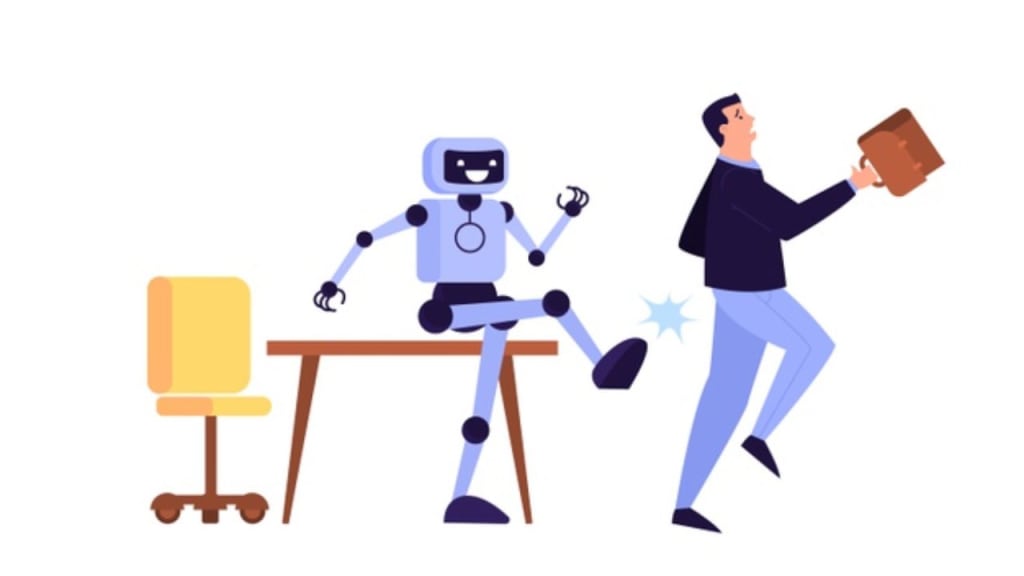
Let’s talk about AI. And whether it’s going to take your job throughout history. Tech revolutions have transformed societies often for the better, but they’ve also put people out of work. The printing press replaced scribes. Robots replaced factory workers and online banking has cut out back tellers with artificial intelligence.
We’re seeing another tech revolution, but at a pace and scale that’s both incredibly exciting and also pretty scary. Yeah. The level of AI technological progress that we can expect five years from now is basically unimaginable. Will we still hire graphic designers when AI can generate images in seconds?
Will we still need as many lawyers if AI can draft basic contracts? And where do journalists like me fit in if AI can sum up a news story? Is your job under threat from artificial intelligence? We’ll increasingly have to ask ourselves the question, where are humans actually still needed? So how is AI already affecting the world of work?
And where is this all heading?
AI has been around for decades, but in the last few years, it really started going mainstream. More and more companies have been embedding different kinds of AI models in their workflow and their products and services. So things like recommendation algorithms used by streaming platforms or AI systems that help banks detect fraud.
But last year, a new tool came along. Chat GPT Version 3. 5 was a big deal. Version 4. took the tech to a whole new level. GPT 4 is a breakthrough in problem solving capabilities. It’s basically a powerful chatbot that can generate an answer to any question it’s asked. It can summarize text, write computer code, and even write a poem.
It’s taken the world by storm, literally a hundred million users within like the first month after the release. ChatGPT does an extraordinarily good job of seeming human like. And it does that through… You know, very, very clever training, huge amounts of data, huge amounts of computing power. But underneath the hood, it is designed to do one thing, which is just to predict what the next word in a sentence is going to be.
ChatGPT is the best known example of a type of AI called generative AI. These are algorithms that look for patterns in huge amounts of data. and learn from those patterns to come up with new content like text, images, video, or audio. Adobe, for example, has added AI to its Photoshop software that allows you to add, extend, or remove content from images using a simple text prompt.
The technology is getting better and better all the time. And all sorts of companies are finding ways to apply it. There are some big, big changes happening. And most importantly, I think huge amounts of money behind this push to automating a lot of cognitive tasks. Generative AI has the capacity to actually create the kind of stuff and do the kinds of tasks that Until recently, we thought only humans could do so.
There is no doubt the advances in generative AI, as well as other types of AI will have huge implications in the workplace. And we’re already seeing it. The tech company IBM says it’s replacing 8, 000 jobs with AI. It says back office operations like HR will be among the first to go. We used to expect that the jobs requiring high skill, white collar jobs or creativity would be safe from AI automation. View In Audio AI
But actually what we’re seeing with generative AI is that writing, design, coding, uh, jobs involving creativity are able to be done often in an indistinguishable manner, um, generative AI. So it’s clear AI has the potential to eliminate a whole range of jobs, and several studies have shown that high skilled jobs are the most exposed to advances in AI.
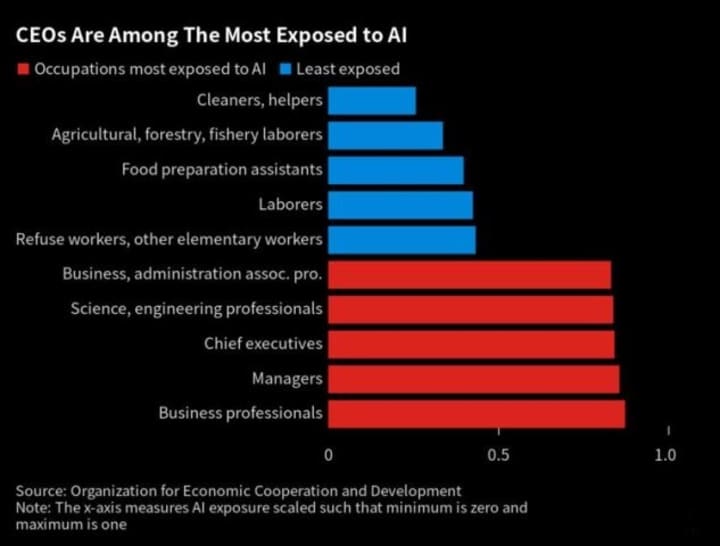
Look at this chart from the OECD, which recently did a big study on AI in the labor market. But these are still early days, and the OECD also found that actually the impact of AI on job levels has been limited so far, and that for the time being, more than replacing jobs.
So the bigger picture around how AI will affect jobs is actually quite mixed. It’s a growing industry, which means new jobs are being created. And in places where there are shortages of certain skills, AI could step in. A medical study found that using AI to read breast cancer scans is safe and effective, and can almost halve the workload of radiologists.
In countries where there aren’t enough radiologists, That’s good news. AI can also improve existing jobs by cutting out the more boring tasks and helping with the creative process. I’m starting to frequently interact with JetGPT in my day to day work. I basically have an almost free research assistant to help me like brainstorm ideas, find and summarize literature, and, um, help me code.
I think instead of. Having like jobs completely displaced. What we will see is workers basically working in cooperation, collaboration with those models and either being able to reduce the work hours or getting more output or more innovation. We can expect that humans can spend more of their time on critical thinking and judgment and interpersonal.
relationship and let the AI technology do the kind of work that it’s more effective at. Maybe the takeaway is this. A. I can increasingly help or even beat us at certain tasks. So it’s going to become more and more about identifying the areas where humans can add value. Especially when we keep in mind the limitations of the technology.
AI models rely on content that humans have already created, and they’re only as good as the data sets they’re trained on. That data could be biased, unrepresentative, or out of date. Just check out the disclaimer on the ChatGPT website. In other words, it gets stuff wrong. They haven’t been programmed to prioritize truth or authenticity.
In most cases… The technology isn’t nearly as good as a lot of the hype says it is. A lot of people still fail to understand the limitations of those systems and are becoming over reliant on them. Um, and that can have, um, real world consequences, uh, eventually if you just like blindly basically trust the systems now, especially given that there’s, um, so much error in the output.
AI is here to stay, and it’s going to be an adjustment for everyone. As with any new technology, there will be winners and losers, but that’s not so much about AI itself, it’s about how humans decide to use it. Some humans will be empowered using these technologies and some humans will be disempowered. So it’s not humans versus robots, it’s humans versus humans.
There’s obviously so much more we can talk about, so let’s carry on this conversation in the comments. Are you already using a I at work? Are you scared or excited about what it could mean for your job or career? Let us know. Written By Audio AI
About the Creator
Audio AI
Generate Human Like Text To Speech
Text To Music
Text To Natural Sound Effects
Ready To Use API
Enjoyed the story? Support the Creator.
Subscribe for free to receive all their stories in your feed. You could also pledge your support or give them a one-off tip, letting them know you appreciate their work.

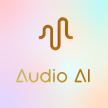
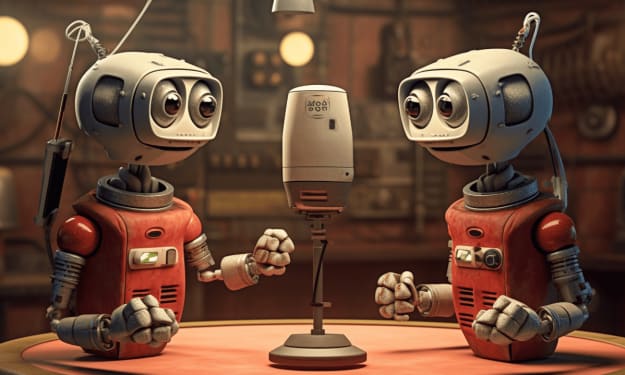

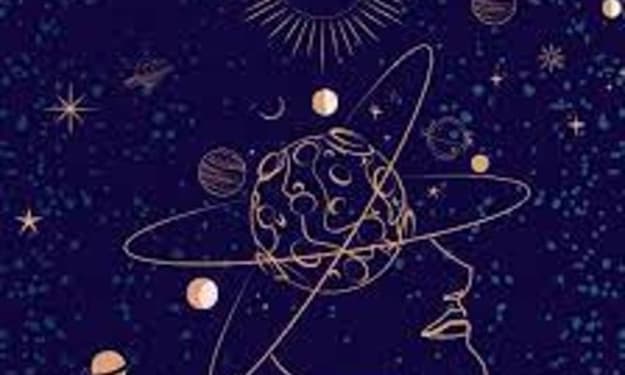

Comments
There are no comments for this story
Be the first to respond and start the conversation.